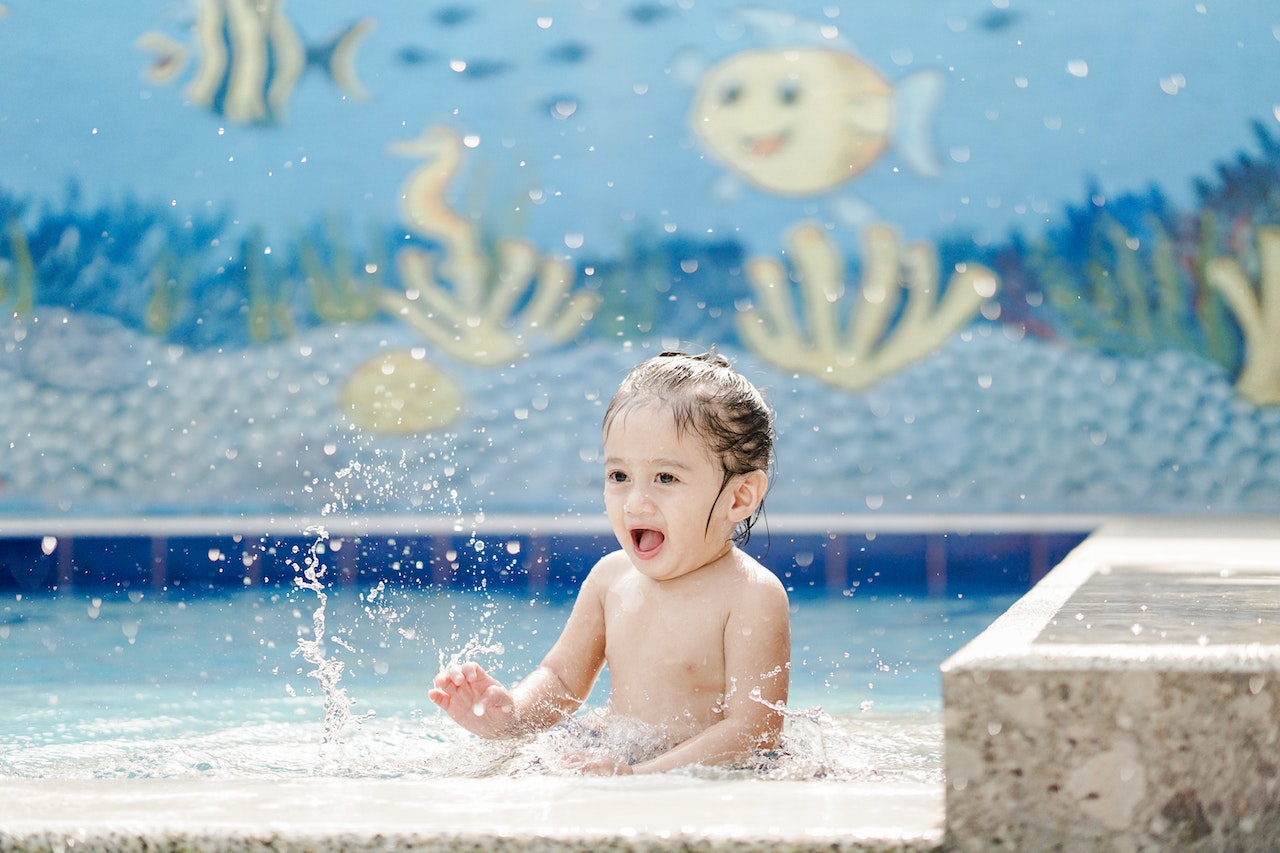Water can be a fascinating thing for babies. They love to play in it, splash around and even put their faces into it. But what happens when a baby accidentally goes underwater? can babies breathe underwater? This article will explore the science behind a baby’s ability to breathe underwater and what you need to know as a parent to keep them safe.
Contents
Introduction

It is natural for parents to be worried when it comes to their child’s safety. So, it is understandable that parents may wonder if babies can breathe underwater. The truth is babies cannot breathe underwater.
Babies need air like humans and can only hold their breath for a few seconds.
The Science Behind Breathing
Before discussing why babies cannot breathe underwater, we must understand the science behind breathing. When we breathe, the lungs take in oxygen and release carbon dioxide. Oxygen is necessary for our body’s cells to function correctly, and carbon dioxide is a waste product that needs to be removed from our bodies.
When we hold our breath, our body’s oxygen levels start to drop, and carbon dioxide levels start to rise. These trigger our body’s natural response to breathe again. So, if a baby were to go underwater, their body’s oxygen levels would start to drop, and its carbon dioxide levels would rise, which would cause them to gasp for air.
Can babies Breathe Underwater?

Babies cannot breathe underwater because their bodies are not designed to do so. When babies are born, they have a natural reflex called the “diving reflex.” This reflex helps them hold their breath when submerged in water, allowing them to stay underwater for a short period. However, this reflex is not strong enough to allow them to breathe underwater.
Another reason why babies cannot breathe underwater is that they have smaller airways than adults. That makes it harder for them to breathe enough air to sustain their body’s oxygen levels, especially underwater.
Drowning Risks for Babies
It is critical to understand the risks of drowning for babies. As you all know, drowning is the leading cause of injury-related deaths for children between 1 and 4 years old. It can happen quickly and silently, even in shallow water.
Babies can drown in as little as 2 inches of water, so parents must be vigilant when their child is near any water, whether a bathtub, pool, or even a bucket of water. Parents should never leave their child unattended near water and always have a designated “water watcher” responsible for watching the child.
6-Water Safety Tips for Babies

As a parent, there are things you can do to keep your baby safe around water. Here are some water safety tips for babies:
As mentioned earlier, drowning is the leading cause of injury-related deaths for children between 1 and 4. Parents should be aware of baby water safety tips to prevent such incidents.
- Never leave your baby unattended near water, even for a second. That is the most crucial water safety tip for babies. Children can drown in as slight depth as 2 inches of water, which can happen quickly and silently. Therefore, it is vital to supervise your child when near water, including in the bathtub, swimming pool, or even a bucket of water.
- Always have a designated “water watcher” responsible for watching the child. It is essential to have a designated person responsible for watching the child when near water, especially when multiple adults are present. This person’s only job is to monitor the child and intervene if necessary.
- Use a proper-fitting life jacket when your baby is near water. If your baby is going to be near water, they should always wear a life jacket that fits correctly. Ensure the life jacket is approved by the U.S. Coast Guard and adequately secured.
- Teach your child to swim early, but remember that swimming lessons do not make a child “drown-proof.” While swimming lessons are helpful, they do not make a child “drown-proof.” Children should always be supervised by an adult when in or near the water, regardless of their swimming ability.
- Install barriers such as pool fencing, pool alarms, and door alarms to prevent unsupervised access to the water. Installing barriers such as pool fencing, pool alarms, and door alarms can help prevent unsupervised access to the water. Ensure that pool gates are self-closing, self-latching and alarms are loud enough to alert you if someone enters the pool area.
- Keep buckets, tubs, and toilets closed and out of your baby’s reach. As explained earlier, Babies can drown in as little as an inch of water, so it is essential to keep buckets, tubs, and toilets closed and out of your baby’s reach. Always empty buckets and other water containers and store them upside down after use.

In addition to the water safety tips mentioned above, teaching your child about water safety as they grow older is essential. Teach them to always ask for permission before going near water, never run near a pool, and never push or jump on others in the water.
Finally, water safety is crucial for babies, and parents should take all necessary precautions to ensure their child’s safety. By following these tips and teaching your child about water safety, you can help prevent accidents and keep your child safe when near water.
Remember, it only takes a second for an accident to occur, so never leave your child unattended around water.
Conclusion
In conclusion, babies cannot breathe underwater. They need air to survive, just like all humans. Parents need to understand the risks of drowning and take steps to keep their children safe around water. By following the safety tips for babies, parents can help prevent drowning and ensure their child is safe when near water.
Accidents can happen in a split second, so always be vigilant and never leave your baby unattended around water. Even if your baby can hold their breath for a few seconds, assuming they can breathe underwater is unsafe. As a parent, you are responsible for keeping your child safe and educating them about water safety as they grow older.
Even babies cannot breathe underwater; they can still enjoy playing in the water with the proper safety measures. Following the water safety tips outlined in this article can help prevent accidents and keep your child safe around water.





